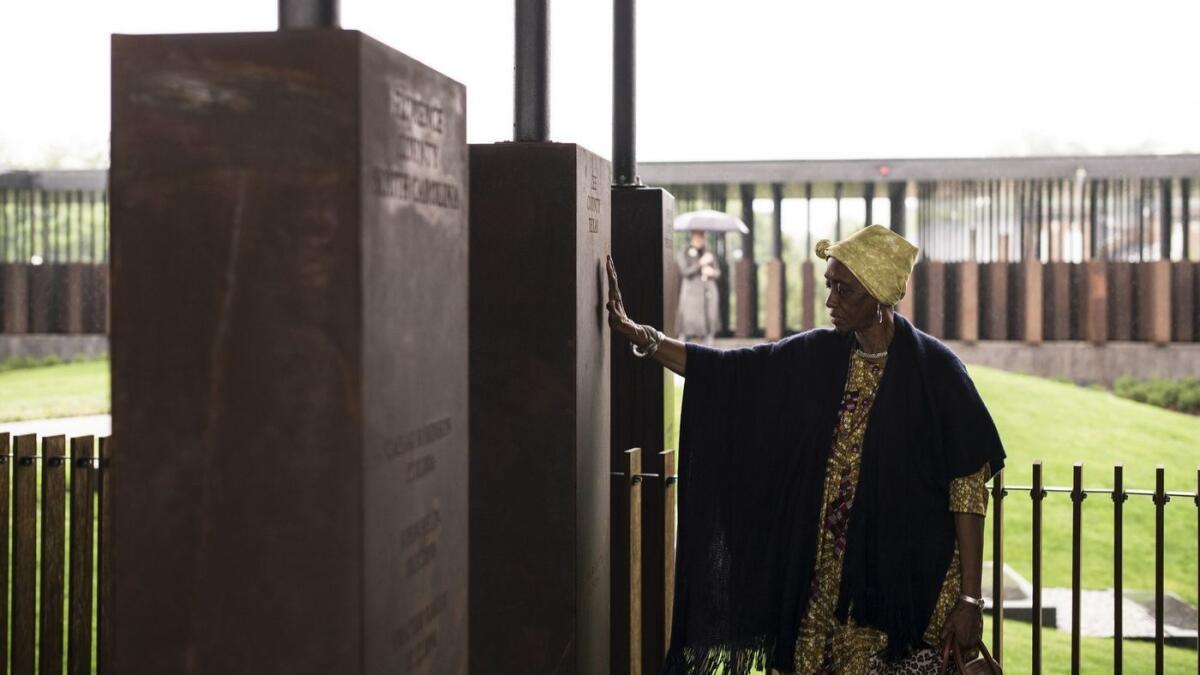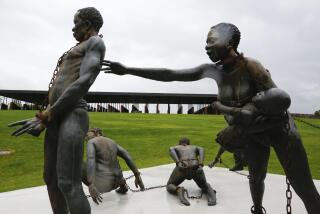Congress has tried more than 200 times to pass an anti-lynching law. This year, it could fail again

It was nearly a century ago that Rep. Leonidas C. Dyer, a Republican from Missouri, introduced a bill to make lynching a federal crime. With vigilante slayings of African Americans rampant, it promised to force the federal government to prosecute lynch mobs for murder.
The bill wasn’t the first in Congress to target lynchings. Others had tried to stop the killings carried out largely against blacks by angry Southern whites who nearly always got away without punishment. (The first attempt, in 1900, by Rep. George H. White, a North Carolina Republican and the only black person in Congress, was defeated in committee.) But Dyer’s legislation was the first to have a serious chance of becoming law when it passed in the House of Representatives and made it out of committee in the Senate.
Southern Democratic senators filibustered to block the bill in 1922, with one, Sen. Lee Slater Overman of North Carolina, saying that African Americans did not want the law and “do not need it.”
It was one of more than 200 failed attempts to make lynching a federal crime. Bill after bill failed, even as the killings continued.
Tuskegee University researchers documented 4,475 lynchings that took place in the U.S. between 1882 and 1968. Most occurred in the South and targeted black people, though Mexicans, Native Americans and some white people were also victims.
“Southern white federal officeholders repeatedly blocked anti-lynching legislation over the decades of the early 20th century, asserting that a federal role in thwarting lynching would violate ‘state’s rights,’” said Michael Pfeifer, a history professor at John Jay College of Criminal Justice in New York.
Lynchings, he said, “performed a terroristic function, in the sense that they were intended to intimidate and create fear” among African Americans and other minorities.
Dyer, who served in Congress until 1933, made several more attempts to pass a law and repeatedly hit the same opposition from Democratic senators.
Even people later known as civil rights champions were against outlawing lynching. When President Harry Truman pushed Congress to pass laws against lynching and segregation in interstate transportation in 1947, then-Rep. Lyndon B. Johnson of Texas — who as president signed the Civil Rights Act of 1964 — called out the president for a “farce and a sham — an effort to set up a police state in the guise of liberty.”
Now, Congress may add one more anti-lynching attempt to its list of shortcomings.
Bipartisan groups of lawmakers introduced bills in the House and Senate over the summer to make lynching a federal hate crime, with the Senate text calling lynching the “ultimate expression of racism” after Reconstruction.
The proposed laws are largely symbolic, as modern-day lynchings are rare and unlikely to go without punishment. Lynchings declined dramatically after the Justice Department, which long ignored them as “local matters,” began prosecuting them in the 1940s, Pfeifer said.
Yet lawmakers behind the bills and supporters including the National Assn. for the Advancement of Colored People said a new law would go a long way in correcting past wrongdoing by Congress and setting the record straight on where the country stands on racist violence. They also said the law would amount to a long-overdue follow-up to an apology the Senate issued 13 years ago for failing to advance anti-lynching laws.
The Senate bill cited the recent rise in hate incidents, such as that of white supremacists who marched in Charlottesville, Va., last year, as another reason to codify the nation’s stance on lynching. The law would also put more federal resources toward tracking and prosecuting future lynchings. “Only by coming to terms with history can the United States effectively champion human rights abroad,” the Senate bill says.
The bill, introduced by the chamber’s three black senators — Kamala Harris (D-Calif.), Cory Booker (D-N.J.) and Tim Scott (R-S.C.) — passed the Senate Judiciary Committee in October. The House bill was introduced by Rep. Bobby L. Rush (D-Ill.) and referred to committee.
“After more than a hundred years of failed efforts, we are now one step closer to finally making lynching a federal crime and putting an end to a long period of congressional inaction and indifference,” Booker said in an October statement. He said the law would “send a very clear signal that we as a nation will not tolerate bias-motivated violence in any form.”
But with a new session of Congress set to convene in early January, neither bill has made it to a floor vote.
The reasons vary.
For one, more than 5,000 bills are introduced in Congress each year. Most don’t make it out of committee, and only a few hundred become laws. A symbolic law with bipartisan support is unlikely to be prioritized in Congress because it doesn’t need a certain party to be in the majority to pass. And an anti-lynching law, political science and African American history experts say, isn’t seen as urgent because the crimes are viewed as being from a long-ago era.
“Until very recently, Americans have made little effort to remember or learn from the country’s extensive history of lynching and racial violence,” Pfeifer said.
But interest in that history is changing through new historical exhibitions and educational efforts, he said.
When it opened two years ago, the Smithsonian’s National Museum of African American History and Culture highlighted the history of lynching and displayed the casket of Emmett Till, a 14-year-old killed in Mississippi in 1955. His mother’s decision to hold an open-casket funeral showing his disfigured face shone a galvanizing light on lynchings. This year, the Justice Department reopened its investigation into the killing.
In April, the National Memorial for Peace and Justice opened in Montgomery, Ala., dedicated in part to “people terrorized by lynching.” The central feature of the memorial, which spreads over six acres of land on a hill overlooking the city, is a collection of 800 hanging 6-foot steel monuments for each county in the U.S. where a lynching took place.
Last month, Mississippi Republican Sen. Cindy Hyde-Smith’s campaign was nearly derailed when a video emerged of her saying she would sit in the front row of a “public hanging” if invited by a supporter. The senator went on the defensive when critics said the remark invoked the state’s history of lynchings.
There have also been reports of what have been described as attempted lynchings. In 2016, the family of a 12-year-old black girl in Waco, Texas, accused a private school of negligence for not stopping bullying that a lawsuit said led to white students dragging the student after tying a rope around her neck. Last month, a jury ordered the school to pay $68,000 in damages. In 2016, four white students in Wiggins, Miss., reportedly tied a noose around the neck of a black football player in the locker room and pulled it.
“No child should be walking down the hall or in a locker room and be accosted with a noose around their neck. This is 2016, not 1916,” Derrick Johnson, then the Mississippi State Conference NAACP president, said at the time. (Johnson became national NAACP president last year.)
“These cases would probably be considered ‘lynchings’ if they resulted in the death of the victim,” said Stewart Tolnay, a professor at the University of Washington who has written about the history of lynchings.
Incidents of “noose intimidation,” when nooses appear on college campuses and in public spaces where African Americans gather, have also made headlines. In summer 2017, at least two nooses were found at Smithsonian museum properties, including the African American museum.
A spokeswoman for Harris said the recent wave of attention to lynchings and lynching symbols was one more reason the senator planned to push for a vote on the bill next year.
“These were acts of violence, needless and horrendous acts of violence that were motivated by racism,” Harris said in a statement. “And we must acknowledge that, lest we repeat it. With this bill, we have a chance to speak the truth about our past, by acknowledging that these lynchings were crimes.... I’m pleased to see such bipartisan support, to right this historical wrong and make clear our commitment to ensure that these hateful acts never happen again.”
More to Read
Start your day right
Sign up for Essential California for news, features and recommendations from the L.A. Times and beyond in your inbox six days a week.
You may occasionally receive promotional content from the Los Angeles Times.






